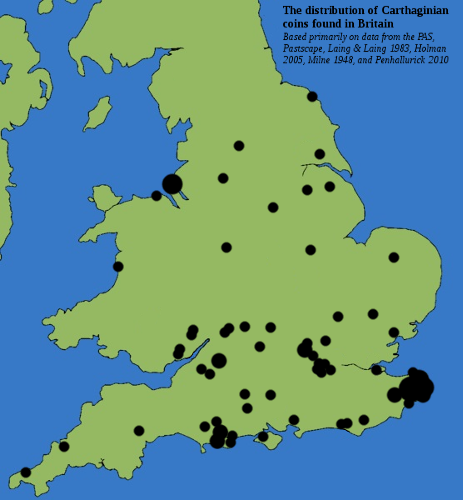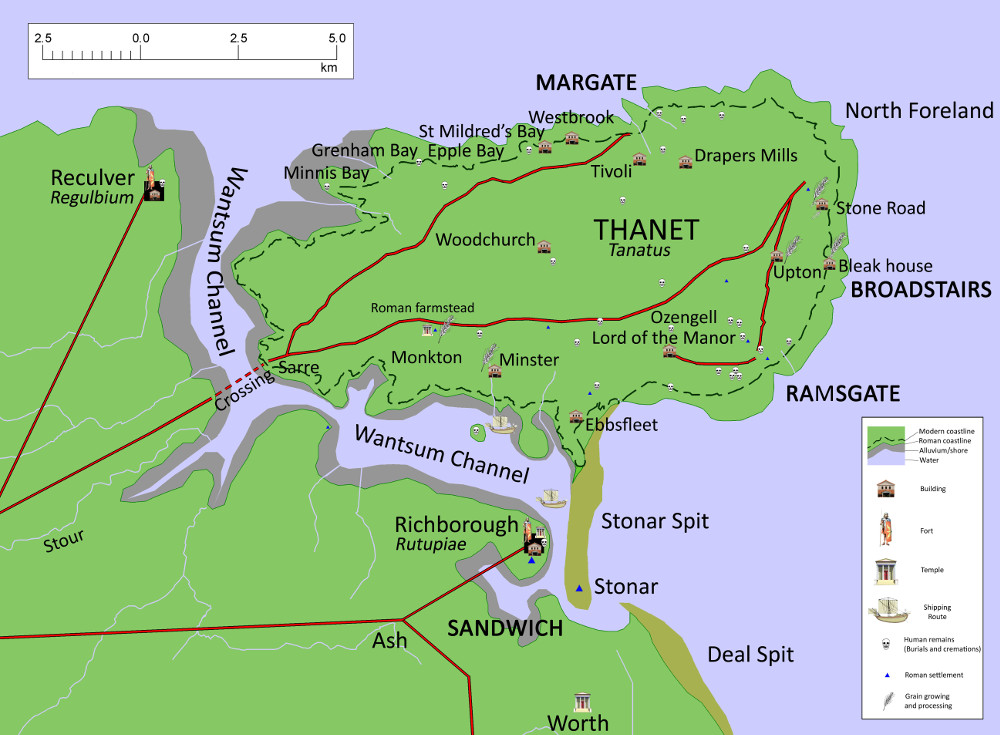On the distribution of Carthaginian coins in Britain.
Thanet, Tanit and the Phoenicians: Place-Names, Archaeology and Pre-Roman Trading Settlements in Eastern Kent?

The biggest black blob is (what was) the Isle of Thanet. Then Poole Harbour. I dunno why Liverpool is next.
The distribution of Carthaginian coins found in Britain (drawn by C. R. Green). This is image is based primarily on the data recorded by the Portable Antiquities Scheme; Historic England's Pastscape database; J. Laing & L. Laing, 'A Mediterranean trade with Wirral in the Iron Age', Cheshire Archaeological Bulletin, 9 (1983), 7–9; D. Holman, 'Iron Age Coinage and Settlement in East Kent', Britannia, 36 (2005), 1–54; J. G. Milne, Finds of Greek Coins in the British Isles (Oxford, 1948); and R. D. Penhallurick, Ancient and Early Medieval Coins from Cornwall & Scilly (London, 2010).

Vennemann argues at length that an acceptable and plausible root for the original British form of the name Thanet—*Tanitā, *Tanetā or *Tanetos/-is, according to Coates (4)—is actually available in the Punic language via a name 'Y TNT, meaning the 'Isle (of) Tanit', the chief goddess of the great, ancient Phoenician mercantile power of Carthage
Moreover, recent work on British place-names suggests that Thanet may not, in fact, stand alone, and is instead one of a small number of obscure and difficult names from Britain that could potentially have Proto-Semitic/Punic roots. So, for example, Rame Head in Cornwall is an Iron Age promontory fort that guards the entrance to the large, natural deep water harbour of Plymouth Sound and the associated 'Tamar Estuary Iron Age coastal node'. This name—Rame in 1086 and thereafter—is, according to Oliver Padel, 'completely obscure' and 'unexplained', with no convincing explanation possible in either Cornish or English; however, it has been pointed out that there may well be such a potential and appropriate explanation available in Proto-Semitic, via the Semitic height-word *rām, as found in the modern place-names Ramat Gan, Israel, and Ramallah, Palestine (Proto-Semitic root *rwm), which would fit this imposing, conical headland well.
Ref :
https://www.caitlingreen.org/2015/04/th ... cians.htmlTisi, did you mention something similar with "Dor" places?


